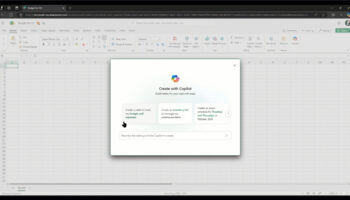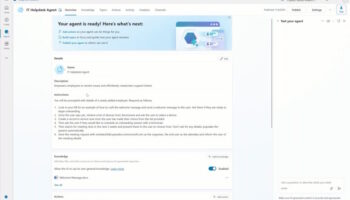Marble: an open source alternative to Google Earth

Google Earth is a great mapping tool, hugely detailed and packed with features. Like Street View, for instance, which helps you navigate millions of miles of road all around the world, and would probably justify installing the program all on its own.
If you don’t like the program, though -- or, maybe, you just don’t like Google -- then there are some excellent alternatives available. The open source and cross-platform Marble, for instance, can’t compete with the photos and the imagery of Google Earth, but is still extremely powerful and has a great deal to offer.
Demand 5 comes to Roku in Britain

Roku is on a bit of a roll lately, with the release of the brand new version 3 hardware, and the continuous addition of new channels and content. While much of this development has taken place stateside, it is not the only front the set-top box maker is tackling. Now it brings Demand 5 to British customers, adding to the plethora of content already available on the little system.
"We’re pleased to announce the addition of Demand 5 to our growing entertainment library in the U.K. Demand 5 on Roku lets customers instantly access Channel 5’s full range of catch-up content as well as an extensive library of popular programs including Big Brother, Archer, Dallas, CSI, and Neighbors. Roku users can also enjoy original programming including The Gadget Show, The Hotel Inspector and Eddie Stobart’s Trucks and Trailers". This brings the total to more than 450 channels -- and that is just within Great Britain.
The new Nexus 7: Not your grandfather's Android tablet
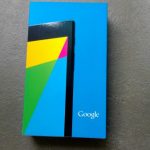
"The new Nexus 7 makes my Asus MeMO look pathetic". That is what I told my colleague Joe Wilcox over the weekend. Android, the open source Linux-based mobile operating system from Google can be found in many places -- cheap no-name tablets run the OS, but should be given a wide berth. Big name hardware makers also produce these gadgets -- Samsung and Sony to name just two. However, the most prominent on the market in recent times has been the Nexus 7, the pure Android experience from Google (but built by Asus), and the Kindle Fire HD, Amazon's highly customized tablet.
In the past, regardless of my liking for pure Android, I would have chosen the Amazon device in a heartbeat. It's thinner and has a better screen, plus Prime customers, like myself, have easy access to the retail giant's streaming video library. However, my view changed this past week, as Google rolled out its latest version of the Nexus 7.
Sony and Panasonic tag-team digital storage with 300GB optical disc

While cloud storage is all the rage nowadays, there is still demand for a reliable physical back-up medium. True, consumers already have access to CD, DVD and Blu-Ray writable discs, but they simply do not offer enough storage space -- low cost, high megapixel cameras and HD video cameras have contributed to an increase in file sizes.
While some may point to low-cost hard disk drives and flash drives, they are simply not reliable enough to store life's precious memories. Also, in addition to personal use, there are professional needs for archiving large amounts of data for business. Today, Sony and Panasonic announce that they are teaming-up to meet the demands of home-users and businesses with a 300GB optical disc.
TAudioConverter can extract and convert almost any audio format

Most PC users will occasionally need to convert audio files from one format to another, and for this most part this is quite straightforward. If, say, you have a few WMA’s which you need to be MP3′s, then just about any audio conversion tool ever written will get the job done.
What if you need to work with some unusual source formats, though? Extract the soundtrack from a video? Configure audio file tags, or take complete control over the encoding process? Then you’ll need a conversion tool with a little more power. Like TAudioConverter, in fact.
Windows Phone stomps all over BlackBerry in Europe

According to a new report from Kantar Worldpanel ComTech, Microsoft's Windows Phone scored another victory over BlackBerry, as in Q2 2013, following Android and iOS, the tiled mobile operating system was the third most popular choice for European smartphone buyers, in major local markets.
In Q2 2013, 6.9 percent of European smartphone buyers from France, Germany, Italy, Spain and UK bought Windows Phone handsets. Meanwhile, only 2.2 percent decided to purchase BlackBerry smartphones. "Windows Phone continues to consolidate its position as the third OS globally, with strong performances in Britain and France where it has 8.6 percent and 9.0 percent of the market respectively", according to the Kantar Worldpanel ComTech report. But it's not all good news though, as Windows Phone's market share dropped slightly in the US.
Cloud management makes for easier hotspot rollouts

UK-based company Managed Connections has launched its new platform as a service (PaaS) offering to provide an easy way for private and public sector organisations to set up their own wireless hotspots.
Derek Williamson, Managed Connections' Commercial Director says, "Our research shows that offering Wi-Fi hotspots will increase customer loyalty, footfall and sales which is a huge benefit to people using our services. The official Managed Connections launch comes after almost four years of research and development and on the back of this we have some really exciting additions planned for the upcoming months. We have made getting 100 percent legally compliant and highly controlled Wi-Fi and wireless broadband into a variety of venues really simple, and we can show clients how to use our platform and services as tools to bring in more customers and how to make money from them. We’re really excited by this aspect of our offering and with our systems, there is now a choice of fully managed Wi-Fi hotspot and ISP packages to suit any sized commercial venue".
Lock your PC -- but not your screen -- with KeyFreeze

If you’re leaving your PC unattended for a while then locking it (pressing Win+L) can be a sensible precaution, as it prevents others from viewing your files or interfering with running programs.
The Windows Lock function also hides the current contents of the screen, though, annoying if you want to leave a movie playing, or perhaps monitor the progress of some lengthy task you’re running. And that’s why might sometimes prefer KeyFreeze, which locks your PC but leaves the screen active, just as before.
The root of the problem -- is there a need for elevated privileges on Android?

Playing with root-friendly apps was one of my favorite activities whilst being an Android user. There was something that I can't quite put my finger on -- be it the empowering feeling that I got or the endless possibilities that were available at my disposal -- that attracted me towards having elevated privileges on the green droid operating system.
I would run my Android smartphone with an overclocked processor (and, even GPU) -- which I enjoyed, as it made everything faster -- but, through root, also gained access to some other features, such as the ability to change color profiles, access system-level files and create and restore backups. These are all things that one can't do when running an untouched version of Android. Undeniably, as you can see, rooting has its perks.
Time to drop Dropbox?

Nothing has changed the way I use computers in the last few years more than Dropbox. The ability to get at my files from anywhere has made a huge difference. But it’s the cloud -- not Dropbox specifically -- that has made the difference. Any cloud storage service that also supported all the platforms I need would do as well… wouldn’t it?
There are a few biggies in the market, but Dropbox is the biggest, best-known name. My opinion is that it got this good reputation for a simple reason: It has the best software. I’ve tried a bunch of these services in the past: Box, Google Drive and Microsoft SkyDrive. There are others, like SugarSync, but I’ve never paid much attention to them.
Folder Actions can automatically rename, convert or compress your files

File management is generally a tedious business which requires plenty of time and effort. To convert a file between formats, say, you might have to launch a program, select an action, choose files, set parameters and more: nothing difficult, but still a hassle.
Folder Actions is a free-for-personal-use tool which can help, allowing you to run many common tasks simply by dragging and dropping your target files onto a folder.
Microsoft adds child abuse warnings to Bing

Bing has become the first of the big search engines to display pop up warnings whenever anyone from the UK uses it to look for child abuse images.
When someone enters any of the keywords from the Child Exploitation and Online Protection Centre (Ceop)’s blacklist into the search site a warning will be displayed informing them that "Child abuse material is illegal" and providing help and advice from Stopitnow.org.
EagleGet extends YouTube download support

It’s been in beta for an unfeasibly long time, and displayed some odd bugs along the way, but download manager EagleGet 1.1 is finally available as a stable release. And while it’s not a major update, there’s still plenty of new goodies to enjoy.
The program now provides a YouTube video sniffer, for instance. If you have a YouTube URL, there’s no need to paste it into a browser anymore; just enter it into EagleGet for a list of videos, and double-click whatever you want to download.
Google Chromecast already hacked
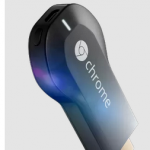
When I spent $35 on the new Chromecast, I expected that it would eventually be hacked. Truth be told, the possibility of tinkering with the device was a big factor in my purchase. However, I never expected it to be exploited so quickly. Today, GTVHacker announces that they have successfully hacked and rooted the media device.
According to the exploit authors, "...Google was kind enough to GPL the bootloader source code for the device. So we can identify the exact flaw that allows us to boot the unsigned kernel. By holding down the single button, while powering the device, the Chromecast boots into USB boot mode. USB boot mode looks for a signed image at 0×1000 on the USB drive. When found, the image is passed to the internal crypto hardware to be verified, but after this process the return code is never checked! Therefore, we can execute any code at will".
Nexus 7 wins, iPad mini loses
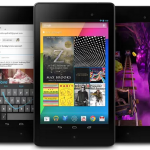
Rest in peace, iPad mini. Google killed you. The question then: Is it murder or manslaughter -- or justified homicide, putting the Apple tablet out of our misery?
Three days using the new Nexus 7, I can't imagine why Apple let Google, and partner ASUS, seize back-to-school buying with the tablet. I don't refer just to the instrument of destruction but the means. The 2013 edition is widely available through major US retailers, including Amazon and Best Buy. By all indications there is inventory to meet demand, not the typical supply shortages, although the 32GB WiFi model is unavailable this weekend from many retailers -- but Google Play is stocked.
Most Commented Stories
© 1998-2024 BetaNews, Inc. All Rights Reserved. Privacy Policy - Cookie Policy.
